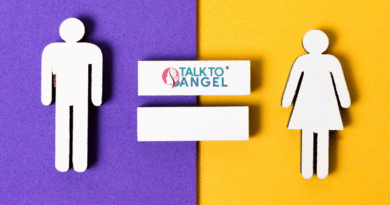Gender Identity Explained: What It Is and Why It Matters
In our world today, many people are starting to talk about gender identity in new and more open ways. Traditionally, we were taught that there are only two genders: male and female. But the gender reality is far more complex. Let’s take a closer look at what gender really means and why understanding it is important.
What is Gender?
Gender is often confused with biological sex, but they are not the same. Biological sex refers to the physical traits a person is born with, such as reproductive organs, chromosomes, and hormones. Gender, on the other hand, is about how people identify themselves and express who they are in the world. It’s shaped by culture, society, and personal experience.
For example, someone assigned female at birth based on their physical traits might identify as a man, a woman, or something else entirely. This understanding of gender helps us see that it’s not just about biology ,it’s about identity.
The Gender Spectrum
Male and female were thought to be the only two genders for a very long time. This idea is called the gender binary. But many cultures and societies around the world have long recognized that gender exists on a spectrum.
The gender spectrum includes identities like:
- Non-binary: An individual who does not clearly define themselves as either a man or gender.
- Genderqueer: Someone who sees their gender as outside or beyond traditional categories.
- Agender: Someone who identifies as having no gender.
- Two-Spirit: In many Indigenous traditions, this phrase refers to a person who possesses both feminine and masculine traits.
These identities show us that gender is not a box we fit into but a fluid and personal experience.
Gender Expression
Another important part of understanding gender is recognizing how people express it.The way a person shows themselves to the outside world is referred to as gender expression. This can include:
- Clothing: What people wear to reflect how they feel about their gender.
- Behavior: How someone acts or carries themselves.
- Speech: The way someone talks or the language they use.
It is important to keep in mind that gender identity and gender expression are two distinct concepts. For example, a man might enjoy wearing makeup or dresses, but that doesn’t mean he identifies as a woman.
The Importance of Pronouns
We may respect someone’s identity by using pronouns. Common pronouns include:
- He/him for men
- She/her for women
- They/them for non-binary people
A more inclusive atmosphere can be achieved by introducing your own pronouns or asking others about theirs. It’s a small but powerful way to show that you value and respect others.
Why Understanding Gender Matters
A more welcoming and encouraging society can be achieved by acknowledging and appreciating the diversity of gender identities. When people feel understood, they are more likely to thrive and contribute positively to their communities. Here are some reasons why understanding gender matters:
1. Mental Health and Well-being
Many people who identify outside the gender binary face discrimination and misunderstanding. This might lead to feelings of sadness, nervousness, and loneliness. By learning about and respecting diverse identities, we can help reduce stigma and create a safer space for everyone.
2. Breaking Stereotypes
Traditional gender roles often limit people. For instance, women are typically expected to be nurturing and submissive, while men are meant to be tough and emotionless. Understanding that gender is not rigid allows people to live authentically without being confined by stereotypes.
3. Celebrating Diversity
Just as we celebrate different cultures, religions, and languages, we can also celebrate the diversity of gender. Realising that each person’s experience is distinct enhances and simplifies our environment.
How to Support Gender Inclusivity
Here are a few simple ways to support gender inclusivity in your everyday life:
- Educate Yourself: Read books, watch videos, and learn from people who share their experiences about gender diversity.
- Respect Pronouns: Use the pronouns people ask you to use, and don’t assume someone’s pronouns based on their appearance.
- Be Open-Minded: Recognize that your understanding of gender might evolve as you learn more.
- Speak Up Against Discrimination: If you see someone being treated unfairly because of their gender, stand up for them.
- Create Inclusive Spaces: Whether at work, school, or home, foster an environment where everyone feels safe and respected.
Top Psychologists Supporting Gender Inclusivity
Here are some top psychologists who provide valuable insights and counseling on gender identity disorder:
- Dr. R K Suri: A seasoned clinical psychologist with vast experience in understanding the nuances of gender identity. He offers counseling that fosters acceptance and mental well-being for individuals across the gender spectrum.
- Mr. Utkarsh Yadav: A compassionate psychologist specializing in supporting individuals exploring their gender identity, ensuring they feel heard and respected.
- Ms. Sakshi Dhankhar: Known for her evidence-based approaches, she provides counseling for mental health issues like anxiety and self-esteem while promoting inclusivity and gender diversity.
- Ms. Mansi: With expertise in gender expression and identity, she supports individuals in navigating societal expectations and embracing their authentic selves.
- Ms. Drishti: A dedicated psychologist who focuses on helping individuals manage stress and discrimination related to gender, offering a safe space for healing and growth.
- Ms. Sangeeta Pal: Specializes in empowering individuals to overcome challenges related to gender identity and expression, fostering resilience and self-acceptance.
- Mrs. Kala Sengupta: A veteran psychologist who blends traditional understanding with modern perspectives on gender, supporting clients in diverse cultural contexts.
- Ms. Tanu Sangwan: Advocates for mental health and gender inclusivity, offering counseling that addresses the intersection of gender identity, gender dysphoria, relationships, and emotional well-being.
These professionals are making significant contributions to mental health and gender inclusivity.
Conclusion
Understanding gender goes beyond recognizing male and female. It’s about seeing people for who they truly are and respecting their identities. By embracing the diversity of gender, we create a more inclusive world where everyone can feel valued and accepted. The next time you meet someone, remember that their story might be different from yours and that’s what makes it so special. Together, we can look beyond labels and celebrate the beauty of being human.
References
- Butler, J. (1990). Gender Trouble: Feminism and the Subversion of Identity. Routledge.
- Fausto-Sterling, A. (2000). Sexing the Body: Gender Politics and the Construction of Sexuality. Basic Books.
- American Psychological Association. (2015). Guidelines for Psychological Practice with Transgender and Gender Nonconforming People. American Psychologist, 70(9), 832–864.
- Bornstein, K. (1994). Gender Outlaw: On Men, Women, and the Rest of Us. Routledge.
- Lev, A. I. (2004). Transgender Emergence: Therapeutic Guidelines for Working with Gender-Variant People and Their Families. Haworth Clinical Practice Press.




